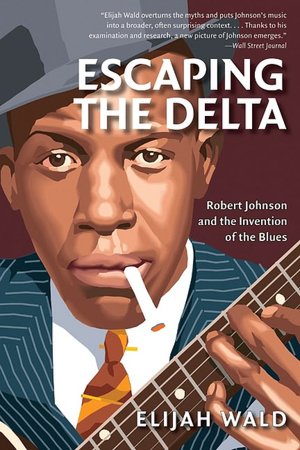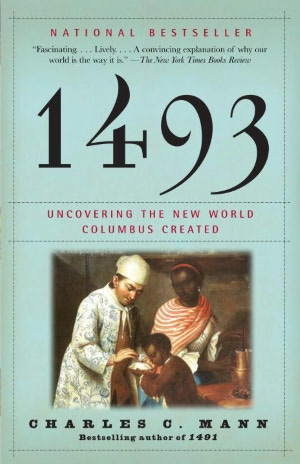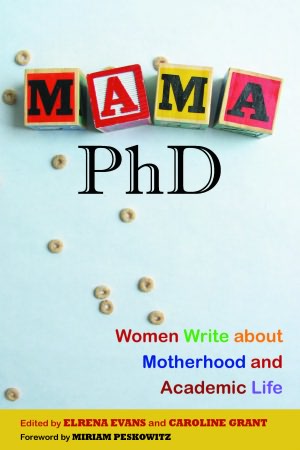Carrie Allen Tipton writes and lectures about classical music, American popular music, religion, and Southern culture. Her work has appeared in many publications and is upcoming in Texas Heritage Magazine, Black Grooves, and the Oxford American. Tipton has presented extensively at conferences and has lectured for the Eroica Trio and the Atlanta Symphony Orchestra; in 2013 she will speak at the Houston Bach Society. Her research has been featured on KUHF radio (NPR in Houston, Texas), in the Houston Chronicle, and in The One: The Life and Music of James Brown (R.J. Smith, Gotham: 2012). Following a Ph.D. in Musicology and a stint as a professor, she flew the coop of academia to write and edit more extensively. She lives in Houston, Texas, with her husband where they wait impatiently for the arrival of their first baby in December. She hopes their child will one day heed the profound wisdom of the television show Reading Rainbow and “take a look—it’s in a book!” More about Tipton can be found at www.carrieallentipton.com. When I was three, my mother enrolled me in group piano lessons. For the first month, I sat next to her on my tiny bench, hands covering my eyes. When she cautiously attempted to remove my little paws, I dug in, explaining that I “was not ready yet.” The thought of new paths may conjure thrilling visions of adventure to some, but to me they signify the peculiar torture of leaving the known and familiar, now just as they did then. But the month of piano lessons did pass. Eventually I took my hands off my eyes and put them on the keys. I kept them there long enough to complete a masters degree in piano performance. Turns out that change can be scary and good all at the same time.
Three decades later, I once again face bends in my own path. Where to turn for nourishment, for the reassurance that others too have set out on unknown roads and have found them to be good? To books, of course. Much of my reading this summer has explored themes of personal and communal exploration of unmapped territories. Here are a few that, in capturing the ambiguity of the gains and losses that come with change, may help you in your own journeys to new places.
 Escaping the Delta: Robert Johnson and the Invention of the Blues
by Elijah Wald
At the micro level, Wald writes of the personal exodus from the Mississippi Delta of bluesman Robert Johnson in the 1930s and his efforts to forge a career in the tough early years of the commercial recording industry. Wald simultaneously charts a broader unmapped path as he smashes his way through standard historical narratives. He takes issue with common notions in written blues history: that the genre represented a primal cry welling up from neo-African roots in the Mississippi Delta, isolated from contemporary pop music; that its early practitioners were unsophisticated musicians; that 1930s Black audiences heard the blues as a pure folk art rather than as commercialized pop music. Wald reminds readers that it is blues historians, not Johnson’s contemporaries, who elevated him to demigod status after his death. Using archival evidence for his assertions, Wald manages to scold blues revisionists and celebrate Johnson’s admirable output all at the same time. A new path indeed.
Escaping the Delta: Robert Johnson and the Invention of the Blues
by Elijah Wald
At the micro level, Wald writes of the personal exodus from the Mississippi Delta of bluesman Robert Johnson in the 1930s and his efforts to forge a career in the tough early years of the commercial recording industry. Wald simultaneously charts a broader unmapped path as he smashes his way through standard historical narratives. He takes issue with common notions in written blues history: that the genre represented a primal cry welling up from neo-African roots in the Mississippi Delta, isolated from contemporary pop music; that its early practitioners were unsophisticated musicians; that 1930s Black audiences heard the blues as a pure folk art rather than as commercialized pop music. Wald reminds readers that it is blues historians, not Johnson’s contemporaries, who elevated him to demigod status after his death. Using archival evidence for his assertions, Wald manages to scold blues revisionists and celebrate Johnson’s admirable output all at the same time. A new path indeed.

 The German Settlement of the Texas Hill Country
by Jefferson Morgenthaler
My point in mentioning this admittedly obscure book isn’t to imply that you should rush out and order it, but to make you wonder how your town or city or region Came To Be. My husband’s mother was born into one of the German communities that began forming in central Texas in the 1840s, and after a trip there we became curious about how and why these folks wound up on the other side of the world. Morgenthaler answered our questions many times over, relating how fallout from the French Revolution drove German nobles to finance the migration of underclass persons to, of all places, the republic of Texas. The book details the often-woeful and sometimes-humorous journeys of the Germans as they pushed forward in the Texas wilderness, surviving on bear meat and negotiating treaties with Comanches. Morgenthaler’s meticulously-researched book reminded me that the tale of new beginnings in unfamiliar places is the story of how all of us came to occupy our present plot of earth.
The German Settlement of the Texas Hill Country
by Jefferson Morgenthaler
My point in mentioning this admittedly obscure book isn’t to imply that you should rush out and order it, but to make you wonder how your town or city or region Came To Be. My husband’s mother was born into one of the German communities that began forming in central Texas in the 1840s, and after a trip there we became curious about how and why these folks wound up on the other side of the world. Morgenthaler answered our questions many times over, relating how fallout from the French Revolution drove German nobles to finance the migration of underclass persons to, of all places, the republic of Texas. The book details the often-woeful and sometimes-humorous journeys of the Germans as they pushed forward in the Texas wilderness, surviving on bear meat and negotiating treaties with Comanches. Morgenthaler’s meticulously-researched book reminded me that the tale of new beginnings in unfamiliar places is the story of how all of us came to occupy our present plot of earth.

 Among the Mad (A Maisie Dobbs Novel)
by Jacqueline Winspear
I hope you have already met Maisie Dobbs, a relatively new yet already much-beloved female sleuth. In my mind her only peer among fictional detectives is Harriet Vane, created by the great writer Dorothy Sayers, for complexity of character and full-bodied realness. Like Sayers’ Vane, Dobbs works in the interwar period in England. The books, and Dobbs herself, are shot through with shadows and scars of the first World War, and a major thread in the series is how Dobbs’ own wartime pain slowly and haltingly gives way to new beginnings in her personal and professional life, though never in a pat or easy way. In this book, as with all books in the series, Dobbs works her way through a new mystery related to the war that gripped Europe fifteen years earlier (the book is set in 1931). She also forges new inroads into her personal relationships, an ongoing theme for Dobbs’ character after the life-altering tragedies she experienced as a nurse during the war.
Among the Mad (A Maisie Dobbs Novel)
by Jacqueline Winspear
I hope you have already met Maisie Dobbs, a relatively new yet already much-beloved female sleuth. In my mind her only peer among fictional detectives is Harriet Vane, created by the great writer Dorothy Sayers, for complexity of character and full-bodied realness. Like Sayers’ Vane, Dobbs works in the interwar period in England. The books, and Dobbs herself, are shot through with shadows and scars of the first World War, and a major thread in the series is how Dobbs’ own wartime pain slowly and haltingly gives way to new beginnings in her personal and professional life, though never in a pat or easy way. In this book, as with all books in the series, Dobbs works her way through a new mystery related to the war that gripped Europe fifteen years earlier (the book is set in 1931). She also forges new inroads into her personal relationships, an ongoing theme for Dobbs’ character after the life-altering tragedies she experienced as a nurse during the war.

